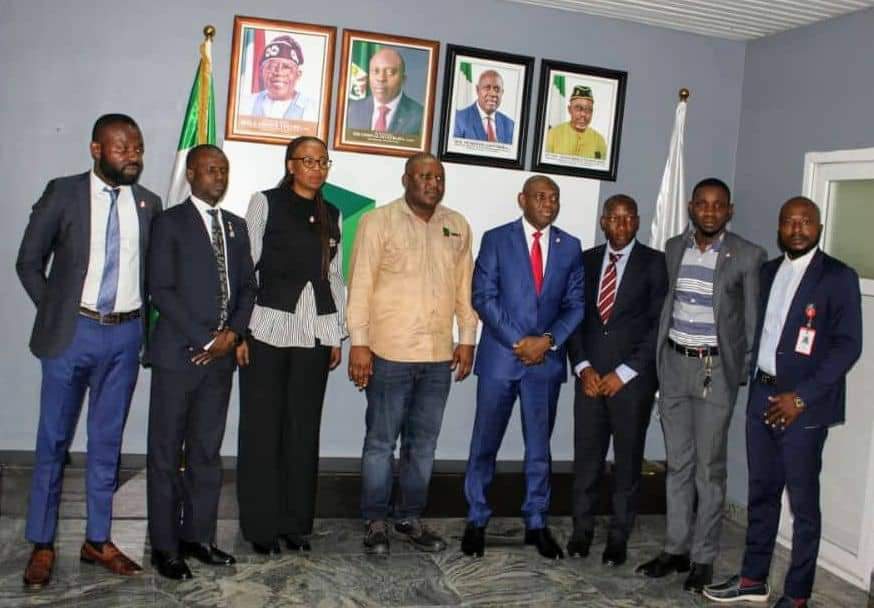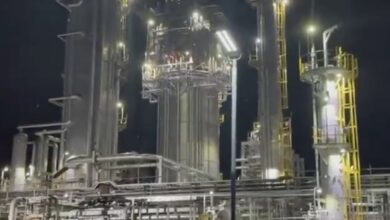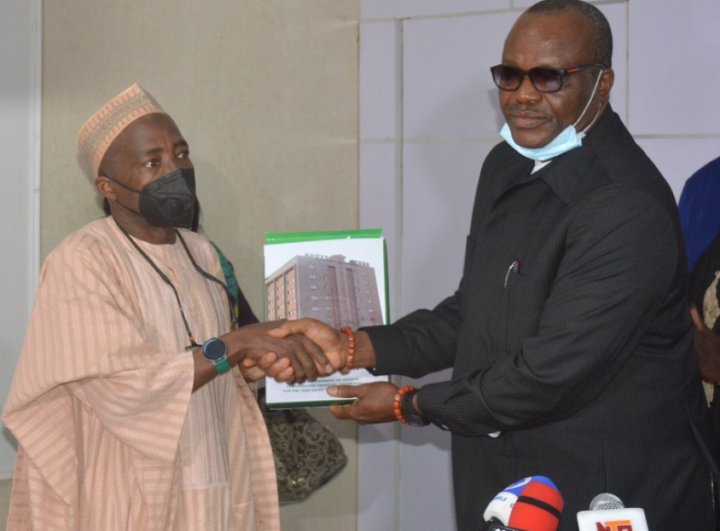Labour Unions suspend planned strike over fuel subsidy removal
The Nigerian Labour Congress (NLC) and the Trade Union Congress (TUC), on Monday, said they will no longer proceed with the nationwide strike planned for Wednesday.Premium Times can report
The resolution was contained in a notice signed by the Speaker of the House of Representatives, Femi Gbajabiamila; the President of the NLC, Joe Ajaero; the President of the TUC, Festus Osifo and Kachollom Daju, permanent secretary Federal Ministry of Labour and Employment.
The decision came after a meeting between the federal government and the labour unions at the Presidential Villa, Abuja.
According to the notice , the parties agreed that the NLC will suspend the notice of strike forthwith to enable further consultations.
“Following the engagements between the federal government, TUC and the NLC, with the intervention of the Speaker, House of Representatives to resolve the disputes that arose from the withdrawal of subsidy on PMS, resolutions were reached that the federal government, the TUC and the NLC would establish a joint committee to review the proposal for any wage increase or award and establish a framework and timeline for implementation.
“The federal government, the TUC and the NLC to review the World Bank Financed Cash transfer scheme and propose inclusion of low-income earners in the program,” the notice said.
“The federal government, the TUC and the NLC to revive the CNG Conversion program earlier agreed with Labor centres in 2021 and work out detailed implementation and timing.
“The Labour centres and the federal government to review issues hindering effective delivery in the education sector and propose solutions for implementation.
“The Labour centres and the federal government to review and establish the framework for the completion of the rehabilitation of the nation’s refineries.
“The federal government to provide a framework for the maintenance of roads and the expansion of rail networks across the country. All other demands submitted by the TUC to the federal government will be assessed by the joint committee.”
Consequently, the parties also agreed that the NLC will suspend the notice of strike forthwith to enable further consultations.
‘The TUC and the NLC are to continue the ongoing engagements with the federal government and secure closure on the resolutions (above).
“The Labour Centers and the federal government to meet on June 19, 2023, to agree on an implementation framework,” the notice said.
The NLC and other workers’ unions had threatened to embark on strike to protest the recent removal of fuel subsidy by the Nigerian government.
Earlier on Monday, the National Industrial Court of Nigeria in Abuja ordered the labour unions to halt the strike they planned to embark on.
Olufunke Anuwe, the judge, gave the order after hearing an ex parte request from the federal government.
Being an ex parte hearing, it implies labour representatives and their lawyers were absent during the hearing.
In her ruling, the judge restrained the NLC and the TUC, the respondents in the case, from embarking on the planned strike action, which was expected to commence on Wednesday.
President Bola Tinubu had, in his inaugural address on 29 May, announced the removal of fuel subsidy. This is a stance he had also maintained in his campaign as a candidate during the election.
Following the announcement, the Nigerian National Petroleum Company Limited (NNPCL) directed its outlets nationwide to sell fuel between N480 and N570 per litre, an almost 200 per cent increase from the initial price below N200.
The hike immediately triggered an increase in transportation fares and prices of goods and services by various percentages.
Subsidy
The government has repeatedly said the subsidy on petrol was unsustainable due to the amount spent. Over N4 trillion was used to subsidise petrol last year, more than the government spent on education and healthcare combined.
This year, the immediate past government of Muhammadu Buhari only provided budgetary allocation for petrol subsidy until 30 June after saying it would leave the incoming administration to make a final decision on the matter.
However, critics of the fuel subsidy removal argue that it will further weaken the purchasing power of Nigerians and impoverish more citizens in a country where almost half of the population is poor







